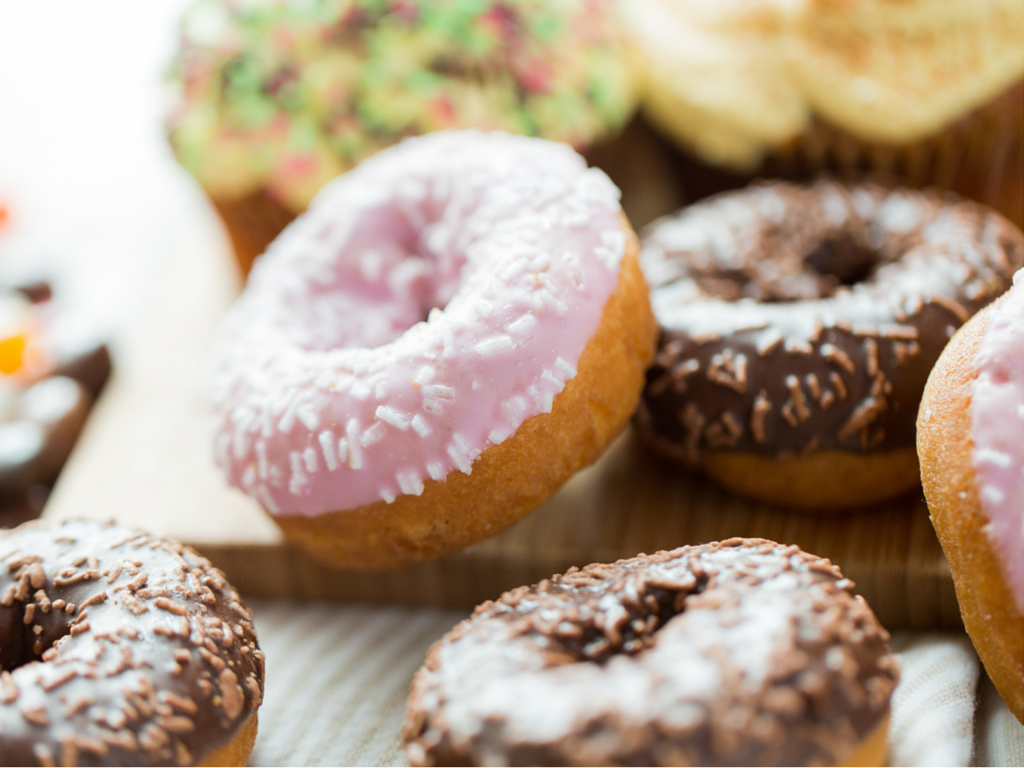The research is clear: there really are foods that can hinder your chances of getting pregnant.
The Nurses’ Health Study followed thousands of women, including a sub-group who had difficulty with their fertility – in particular, problems with ovulation. Women who had problems with ovulation resulting in a harder time getting pregnant consumed certain foods more often. These anti-fertility foods are the focus of this post.
Why Does Food Affect Fertility?
Put simply, the food you eat literally becomes your body as old cells die and are replaced by new cells. Your diet also provides nutrients that nurture your body, including creating the environment of your reproductive system which fosters and matures your eggs. (Similarly, food quality and nutrient intake has been shown to impact on sperm quality in men).
So what are these 3 foods to avoid when trying to conceive? Let’s count them down.
#3. White stuff. That’s right, Wonderbread isn’t so wonderful for your babymaking. White flour products like buns, white pasta, pizza crust and pastries rapidly converts into sugar in your bloodstream. Excess blood sugar raises insulin levels, and the resulting high insulin blocks ovulation. This is one of the major reasons why women with PCOS (polycystic ovarian syndrome) are at greater risk for infertility.
How to replace it: Take the white stuff right out of your diet and choose whole grains in their natural form, such as boiled brown rice or quinoa, millet or oatmeal. Limit pastries, muffins and other baked goods if you don’t know what’s in them, and choose 100% whole grain breads and crackers.
#2. Shortening. One of the only truly “bad fats”, synthetically produced “trans” fats are associated with infertility. As published in the American Journal of Clinical Nutrition, a woman who consumes just 2% of her calories from trans fats increases her risk of ovulatory infertility by 73%. Health Canada regulations have largely reduced the amounts of trans fats in processed foods in Canada, but if a food contains less than 0.5 grams of trans per serving, it’s allowed to be labelled as containing zero trans per serving! That’s significant, considering the maximum daily intake of these potently dangerous molecules (as my university nutrition professor long ago described them) is just 2 grams. What makes hydrogenated or trans fats a such problem for fertility is that they create inflammation in the body. I explain why inflammation disrupts your chances of getting pregnant in my new e-book, available here.
How to replace it: Read your labels, and skip foods like pastries, chocolates with soft truffle centres and other processed foods – especially those containing trans fats. Instead of shortening, try baking with coconut oil and/or organic butter or ghee. (Note that the Nurses’ Health Study also showed that women should consume full-fat dairy if they choose dairy products). Coconut oil supports gut and brain health, while butter and ghee are rich in vitamin A, a nutrient that promotes a healthy reproductive tract in amounts naturally found in foods.
#3. Pop. Soft drinks are saturated with sugar, and in one of the worse possible forms: the infamous high-fructose corn syrup. This highly processed sugar is one of the strongest promoters of insulin resistance. And going with “diet” pop didn’t decrease the risk of infertility. That’s likely because the artificial sweeteners found in diet soft drinks, like aspartame, are so sweet that they still stimulate the secretion of insulin into your bloodstream, so they perpetuate the hormonal imbalance that blocks ovulation.
How to replace it: Instead of pop, try mineral water with lemon, stir a few drops of stevia and a few frozen berries into soda water, or enjoy a low-sugar kombucha (5 g sugar or less per serving), a fermented drink that tastes like a refreshing cocktail.
Ready to Let Your Fertility Shine? Apply for a Fertility Discovery Call with Dr. Elizabeth Cherevaty here.

